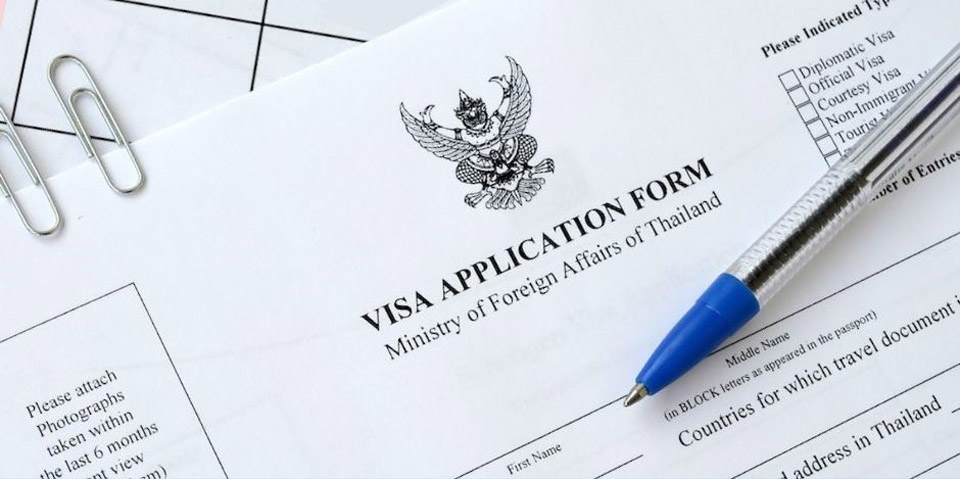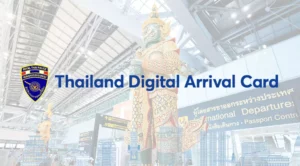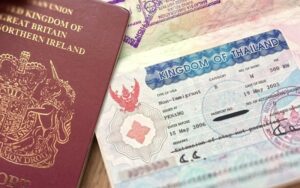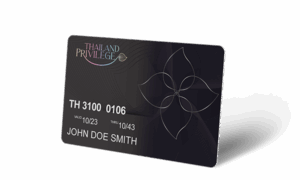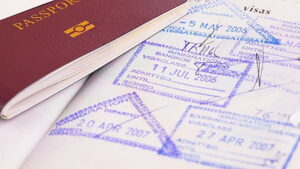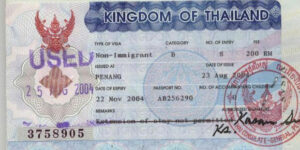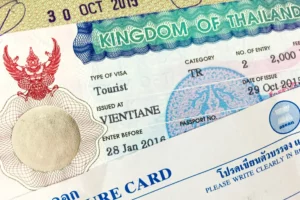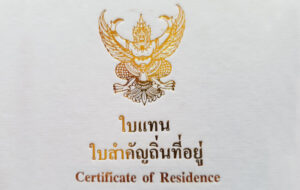Thailand Long-Term Resident Visa, introduced in 2022, is more than just a long-stay permit. It is a residency framework designed to attract targeted foreign populations—wealthy individuals, experienced professionals, retirees, and remote workers—who can contribute to Thailand’s economy and knowledge sectors.
This visa is structured around long-term legal certainty, administrative convenience, and targeted economic privileges. It reflects a shift from traditional immigration policy to a model of residency by economic participation, blending immigration law, tax code, and investment access.
This article examines the LTR Visa with practical precision and legal depth, focusing on its structural design, fiscal treatment, and privileges conferred to each applicant category.
I. Legal Structure and Administrative Authority
The LTR Visa is authorized under Thailand’s Immigration Act B.E. 2522 (1979) but is operationalized through a Cabinet-approved regulatory framework. The program is jointly managed by:
-
The Thailand Board of Investment (BOI) – oversees applicant screening, digital work permits, and economic qualification.
-
The Immigration Bureau – grants and monitors visa status.
-
The One Stop Service Center (OSSVC) – serves as a processing hub for extensions, reporting, and document changes.
Important distinction: The LTR Visa does not fall under the traditional Non-Immigrant Visa B, O, or O-A categories and is exempt from many of their procedural burdens.
II. Validity and Entry Rights
-
Total duration: 10 years (issued in two 5-year terms).
-
Multiple-entry privileges: Unlimited re-entries without additional permits.
-
Address reporting: Annual, replacing the standard 90-day check-in.
The legal framework positions the LTR Visa closer to a semi-permanent residency status—not equivalent to Permanent Residency, but providing much greater continuity and stability than standard visas.
III. Eligibility Categories and Their Economic Roles
Each LTR applicant must qualify under one of four BOI-defined categories. These categories are linked to Thailand’s strategic goals.
1. Wealthy Global Citizens
-
Asset threshold: USD 1 million net assets.
-
Income: USD 80,000/year minimum (past 2 years).
-
Investment in Thailand: USD 500,000 in government bonds, property, or equity.
Role: Inject foreign capital into key Thai sectors (real estate, finance, and capital markets).
2. Wealthy Pensioners
-
Age: Minimum 50 years.
-
Income: USD 80,000/year, or USD 40,000 + USD 250,000 in Thai investments.
Role: Promote stable, long-term residency from passive-income foreigners with non-labor participation in the economy.
3. Work-from-Thailand Professionals
-
Employer: Foreign company with ≥ USD 150 million annual revenue.
-
Income: USD 80,000/year.
-
Experience: Minimum 5 years.
-
Remote role: Must be fully remote-compatible.
Role: Legally accommodate remote workers without impacting the domestic labor market.
4. Highly Skilled Professionals
-
Income: USD 80,000/year (or USD 40,000 for holders of master’s or doctoral degrees).
-
Field: Tech, healthcare, AI, fintech, energy, biotech, or other BOI-targeted sectors.
-
Employer: BOI-endorsed Thai or foreign company in Thailand.
Role: Enable legal hiring of globally skilled labor in strategic industries without work permit quota constraints.
IV. Benefits and Privileges
A. Work Authorization via Digital Permit
-
Available for Work-from-Thailand and Highly Skilled Professionals.
-
Issued by BOI, not subject to Ministry of Labour quota.
-
Fully electronic—no paper work permit booklet required.
-
Valid for the full visa duration.
This digital permit removes traditional bureaucratic friction, allowing holders to work legally without company sponsorship obligations typical of Non-B visas.
B. Taxation: Legal Mechanisms and Incentives
1. Flat 17% Income Tax (PIT)
-
Offered to Highly Skilled Professionals.
-
Applies to Thai-sourced income from BOI-registered employers.
Thailand’s standard PIT rates range from 5% to 35%. The flat 17% is a significant legal advantage, not available under any other visa scheme.
2. Foreign Income Exemption
Under Thai Revenue Code rules:
-
Foreign income is not taxable if:
-
It is earned abroad, and
-
Not remitted into Thailand in the same calendar year.
-
This exemption is fully applicable to LTR holders, allowing for legal and efficient global income management.
3. Tax Residency
-
Triggered by 183+ days of physical presence in Thailand per calendar year.
-
Requires filing of tax returns, even if no tax is due due to income source or remittance deferral.
C. Family Inclusion
-
Up to 4 dependents may be included:
-
Spouse.
-
Children under age 20.
-
-
Dependents receive the same 10-year visa.
-
Spouses may also apply for work permits under appropriate categories.
D. Immigration and Airport Services
-
Fast-track immigration lanes at all major Thai airports.
-
Elite Personal Assistant (EPA) service for VIP immigration processing (on request).
-
Re-entry permit exemption—LTR holders can leave and return without interruption to status.
E. Property and Investment Rights
While LTR holders do not receive land ownership rights (restricted by Thai law), they do have:
-
Freehold condominium ownership (within the 49% foreign ownership cap).
-
30-year leasehold rights on land and houses, with option for renewals.
-
Eligibility to invest in:
-
Thai government bonds.
-
Public/private equity.
-
BOI-registered Thai companies.
-
For the Wealthy Global Citizen and Pensioner categories, investment in such assets is part of the eligibility structure.
V. Practical Applications
Use Case 1: Digital Worker in Chiang Mai
A Canadian tech entrepreneur working for a U.S. startup qualifies as a Work-from-Thailand Professional. He:
-
Works legally in Thailand without registering a company.
-
Pays no Thai income tax if salary is not remitted in the same year.
-
Secures 10 years of residency with no 90-day reporting.
Use Case 2: Retired Investor
A Dutch retiree invests USD 300,000 in a luxury condominium in Phuket and has a pension of USD 45,000/year. As a Wealthy Pensioner, he:
-
Obtains a 10-year LTR Visa.
-
Avoids annual retirement visa extensions and income documentation.
-
Is exempt from Thai tax on his pension if not remitted during the earning year.
Use Case 3: Skilled Foreign Executive
An AI researcher earning USD 90,000 joins a BOI-certified Thai robotics firm. As a Highly Skilled Professional, she:
-
Receives a 10-year visa with digital work authorization.
-
Pays only 17% PIT on her salary.
-
Brings her spouse and child under the same visa.
VI. Limitations and Revocation Triggers
While the LTR Visa is structurally stable, it has enforceable compliance requirements:
-
Health insurance (minimum USD 50,000 coverage) must be maintained.
-
Continued compliance with income, employment, or investment thresholds is needed for 5-year renewal.
-
Revocation may occur in cases of:
-
Criminal conviction.
-
Immigration violations.
-
Failure to meet eligibility requirements during reassessment.
-
It does not confer Thai permanent residency or citizenship, and time spent under this visa does not count toward residency application eligibility.
Conclusion
The LTR Visa Thailand is a sophisticated legal instrument—not merely a long-stay permit, but a regulatory platform offering tax optimization, simplified legal employment, streamlined reporting, and strategic investment access. It is designed to attract a very specific kind of resident: one who contributes more than presence—someone who contributes value.
For those who meet the qualifications, it offers a coherent, long-term legal basis for life in Thailand without the visa-related uncertainty that often accompanies foreign residence in Southeast Asia.
